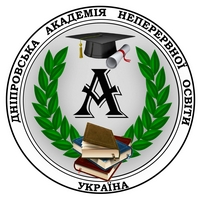VECTORS OF STATE REGULATION OF COMPETENT APPROACH IN THE EDUCATION SYSTEM OF UKRAINE FROM THE PERSPECTIVE OF JOINING THE EUR
Abstract
The main idea of the competence approach is the formation of education system depending on proposed requirements of society, that is, on the expected result. The content of key competencies includes not only knowledge,
but also the willingness to apply knowledge in various situations. Thus, the competence approach allows in the process of education to form a person’s readiness and ability to independently and responsibly solve professional and personal problems related to the ability to acquire and qualitatively use knowledge, applying it in real situations, to develop flexibility, mobility, which contributes to self-development and self-realization personality. Nevertheless, the reality is that in practice, the implementation of the competence approach in the education system acquires, to a greater extent, only a declarative character. In addition, there are large differences in the application of the approach in our country and the countries of the European Union. This indicates the need to find modern vectors of state regulation of the competence approach in education system of Ukraine based on European practices, taking into account our prospects for joining the European Union. The purpose of the article is to study Ukrainian and European ways of implementing the competence approach in the education system. The methodological basis of the research is the methods of logical generalization, systematic analysis and synthesis. The article examines the evolution of the concept of «competence» in education. The key ideas of the competence approach are defined, in particular, the importance of the influence on the development of competences not only of education, but also of family, friends, work, politics, religion, etc. is analyzed. It is the entire set of influencing factors that forms the system of value orientations that become the basis for formation of new competencies. The competence approach is characterized in a systematized form, based on the mission of education. The mechanisms of implementation of the competence approach in education system were studied, in particular, through measures to determine the own achievements of both teachers and students of education. The key positions of the Framework Program of Key Competences for Lifelong Learning by the European Parliament and the Council of the European Union are highlighted. Based on this, the main vectors of the development of the competence approach in the European Union were formed. As a result of the conducted research, it is proposed to start work on a comprehensive state program for the development of key competencies at all levels of education, including both children’s and adult education, which should be based on the requirements of social development, the European integration vector and Ukrainian traditions.
References
2. Inclusive education at the beginnings of global middle education: education for a trainer. (2018). Kyiv. Retrieved from: http://posibnyk.nus.org.ua/wp-content/uploads/ HANDOUT-for-trainers_TOT-Sept-2018_corrected-final1-new.pdf (accessed: 23.05.2022) [in Ukrainian].
3. Kodlyuk, Ya. P. (2016). Key competencies of the best mentors for the pochatkovo school. Problemy suchasnoho pidruchnyka, 17, 182–191. Retrieved from: http://ipvid.org.ua/products/2016_2/article.php (accessed: 23.05.2022) [in Ukrainian].
4. Educational and methodological manual «New Ukrainian school: teaching methodology of the integrated course «I explore the world» in 1-2 classes of general secondary education institutions based on the competence approach». (2019). Kyiv: Vydavnytstvo «Alaton» [in Ukrainian].
5. Taubaeva, Sh. T., Laktionova, S. N. (2001). Pedagogical innovation as a theory and practice of innovations in the education system. Almaty [in Russian].
6. Chomsky, A. N. (2002). Syntactiс Structures. Second edition. Berlin : N.Y.: Mouton de Gruyter [in English].
7. Hymes, D. (1985). Toward linguistic competence. AILA Review. Revue de l’AILA (Association Internationale de Linguistique Appliquée), 2, 9–23 [in English].
8. Hymes, D. (1992). Inequality in language: Taking for granted. Working Papers in Educational Linguistics, 8(1), 1–30 [in English].
9. Perrenoud, P. (2000). The skills-based approach: a response to school failure? Succeed in college. Association québécoise de pédagogie collégiale. Actes du 20e colloque de l’AQPC. Laval, Québec, 4 [in French].

 ISSN
ISSN  ISSN
ISSN 

